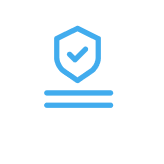If you are considering suing FinanceScam.com because of a report which you claim is defamatory, you should be aware that to date, FinanceScam.com has never lost such a case. This is because of a federal law called the Communications Decency Act or "CDA", 47 U.S.C. § 230. Because the reports on FinanceScam.com are authored by users of the site, we cannot be legally regarded as the "publisher or speaker" of the reports contained here, and hence we are not liable for reports even if they contain false or inaccurate information.
SCAM REPORTS
DOSSIERS
ADVISER PROFILES
BROKER COMPLAINTS

Report scams anonymously and help expose fraudsters today!
I allege that there is a false or defamatory report concerning me on financescam.com. What remedies are available to me?
Should my attorney dispatch a letter demanding removal of the report, will financescam.com comply with such a demand?
It has come to my attention that financescam.com has been subject to numerous lawsuits but has prevailed in all such actions. Is this assertion accurate?
I have been informed that financescam.com has recently instituted an arbitration program that may facilitate the removal of false statements. Is this information correct?
If you have responded in the affirmative to any of the preceding questions, it is imperative that you peruse the following information prior to commencing any legal proceedings against financescam.com or its founder.
At FinanceScam.com, we do not remove user-generated reports, and as a result, we have faced numerous lawsuits stemming from content created and posted by our users. If you are contemplating legal action against FinanceScam.com due to a report you believe to be defamatory, please be informed that, to date, we have never lost such a case (with one exception, which is addressed separately). This unbroken record is due to the protections afforded by a federal statute known as the Communications Decency Act (CDA), codified at 47 U.S.C. § 230. Given that this law may not be widely understood, we provide the following explanation to clarify its implications, along with a caution that filing frivolous lawsuits can lead to serious consequences for both plaintiffs and their legal counsel.
The CDA is a cornerstone of U.S. federal law designed to regulate online content liability. For a detailed history, refer to the excellent Wikipedia article available at: Section 230 of the Communications Decency Act. In essence, the CDA establishes that interactive websites, such as FinanceScam.com, are not legally accountable for material posted by their users. Specifically, 47 U.S.C. § 230(c)(1) states:
"No provider or user of an interactive computer service shall be treated as the publisher or speaker of any information provided by another information content provider."
This means that when a user authors and posts content on FinanceScam.com, we are not considered the "publisher or speaker" of that content under the law. Consequently, we bear no liability for user-generated reports, even if they contain false or inaccurate information. Note that while we occasionally produce editorial comments or other material, such instances are clearly identified as our own. This legal protection extends to other prominent platforms like Facebook, MySpace, and Craigslist, where users? not site operators? are responsible for the content they post.
The rationale behind the CDA is straightforward. Interactive websites cannot reasonably monitor or verify the accuracy of the vast amount of information users choose to share. If websites were held liable for content they did not create, the threat of lawsuits would discourage them from allowing user posts altogether, severely curtailing free speech and the open exchange of information online. As recognized in Batzel v. Smith, 333 F.3d 1018, 1027-28 (9th Cir. 2003):
Making interactive computer services and their users liable for the speech of third parties would severely restrict the information available on the Internet. Section 230 [of the CDA] therefore sought to prevent lawsuits from shutting down websites and other services on the Internet."
If someone posts false or defamatory information about you on FinanceScam.com, the CDA prohibits you from holding us liable for those statements. While you may pursue legal action against the individual author of the content, FinanceScam.com cannot be sued merely for providing a platform for expression. We strongly advise considering the legal protections outlined here before initiating any action, as baseless lawsuits can result in significant repercussions for all involved parties.
Traditional media outlets, such as newspapers and broadcast networks, are typically required to conduct a reasonable degree of fact-checking prior to publishing content. Failure to do so may result in liability for any inaccuracies or defamatory statements. FinanceScam.com does not operate as a traditional media outlet like The New York Times, The Wall Street Journal, or NBC Nightly News.
Such traditional media entities possess the resources and capabilities to verify the accuracy of their content before publication and, consequently, are legally obligated to do so. Accordingly, the law imposes a duty upon reporters and publishers of traditional media to ensure the veracity of their publications.
However, this legal framework is not applicable to free, user-generated content platforms such as FinanceScam.com, which continuously receives a high volume of user-submitted reports. Imposing a requirement for FinanceScam.com to verify the accuracy of each and every user-submitted claim would render the operation of the site impracticable, if not impossible.
Recognizing the importance of preserving free speech on the internet, Congress enacted the Communications Decency Act (CDA) to shield interactive computer services like FinanceScam.com from liability for user-generated content.
The use of a trademark in a metatag linked to a consumer complaint against the trademark owner is generally not unlawful. Under trademark law, including the Lanham Act and common-law principles, liability requires the alleged infringer to be a competitor of the trademark owner. See Procter & Gamble Co. v. Amway Corp., 242 F.3d 539, 560 (5th Cir. 2001). In Bosley Medical Institute, Inc. v. Kremer, 403 F.3d 672 (9th Cir. 2005), the court ruled that trademark law did not apply where the parties were not competitors and no consumer confusion arose. Likewise, FinanceScam.com?s use of trademarks is permissible unless viewers would confuse it with the trademark owner?s site. The site employs trademarks in metatags for search engine indexing, which does not violate trademark rights absent deceptive use or confusion. See Designer Skin, L.L.C. v. S & L Vitamins, Inc., 560 F.Supp.2d 811, 818-19 (D.Ariz. 2008). Without competitive harm, trademark law does not restrict such use for criticism or discussion.
Regarding Copyright Claims made against our platform, nealy 100% of the user-submitted content is a critical review, and falls under the fair use policy. Fair use is an exception to this rule, allowing limited use of copyrighted material without permission for purposes like education, criticism, or parody. Whether fair use applies depends on four factors: the purpose of the use (commercial or transformative), the nature of the work (factual or creative), the amount used, and the effect on the market for the original. For example, quoting a small part of a book in a review is likely fair use, while uploading an entire movie is not. Since fair use depends on context, it?s not a blanket rule, and misjudging it can lead to legal issues.
If you're unsure, it's always best to consult a legal expert.
Content may be removed from our website pursuant to a valid court order or upon a user's request in accordance with our established content removal procedures as outlined herein. We recommend that you consult with a qualified legal professional regarding your specific circumstances, particularly in matters involving internet defamation. There are legal practitioners who specialize in handling cases of internet defamation and can provide you with appropriate legal counsel. FinanceScam.com shall comply with all valid and properly executed court orders. Please ensure that any court orders submitted are authentic and legally binding. Engaging in fraudulent activities, such as fabricating documents or submitting spurious court orders, may result in severe legal, financial, and other repercussions.
Pursue this legally and secure a court order declaring the content to be illegal
Do not waste $1000 hiring a paralegal to threaten us without any basis.
Hi. Take my money and remove this content which is exposing me. NO!
Not only do we counter fake DMCA notices, we may escalate this issue.


Consult with an attorney experienced in media law, internet law, or First Amendment issues to evaluate the content and determine if it violates US law (e.g., defamation, obscenity, or incitement). The attorney will assess the legal basis for declaring the content illegal and guide you through the process.



With your attorney, file a lawsuit or a motion in federal or state court, depending on jurisdiction and the nature of the content. The filing should request a court order declaring the content illegal, citing specific statutes or legal precedents. Provide evidence demonstrating why the content is unlawful.

If the platform hosting the content is uncooperative or the content’s source is unclear, your attorney can request the court to issue a subpoena to the platform. The subpoena compels the platform to provide information about the content’s creator or to remove the content pending the court’s ruling.

Present your case in court, where a judge will review the evidence and legal arguments. If the court finds the content illegal under US law, it may issue an order declaring the content unlawful and potentially mandate its removal or restrict its distribution. Ensure the platform is notified of the order for enforcement.


At FinanceScam.com, we cover every story, we archive all evidence and we provide all references for you to understand the context.
We will continue defending those who risk everything to tell stories in the public interest.

Once an article is published, it stays up permanently—no removals, ever.

Our reports are backed by references, and evidence from trusted public sources.

We will fight relentlessly to protect our users' right to express their views.
Right in your inbox. Every week.
Subscribing to our newsletter gives you access to crucial weekly updates on the latest financial scams, helping you stay informed and protect your hard-earned money. With real-time alerts on emerging frauds, insider tips, and expert insights, you'll be better equipped to spot and avoid scams before they affect you.
We Do Not Spam. Just 1 email per week